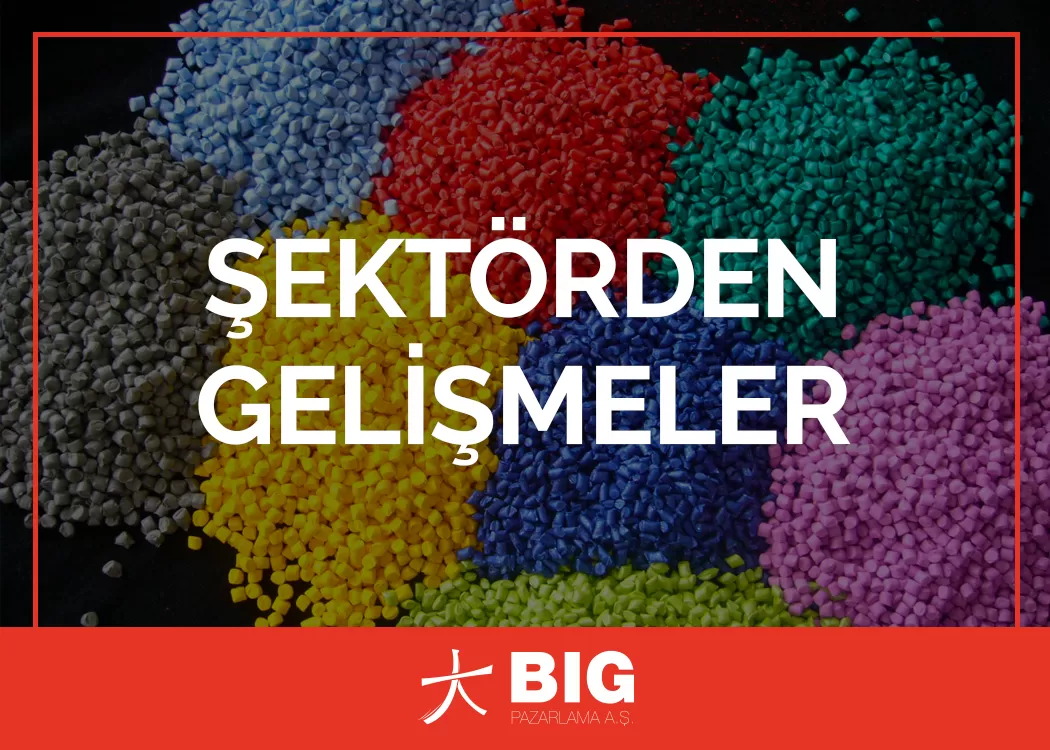Istanbul Chamber of Industry (ISO) shared its sector-specific sustainability priorities in the Chemical Products, Plastic and Rubber Products Industry Sustainability Roadmap.
Istanbul Chamber of industry (ISO), the European Green New Covenant, such as global climate change and sustainability in international trade within the framework of the road map for new systems determined by considering the sustainability sector continues to explain the vision of under 10. ISO announced the fifth of the guides it has prepared for the Chemical Products, Plastics and Rubber Products Industrial sector in order to generate high added value in the global Sunday and increase its sustainability competencies for 10 separate sectors where 55 professional committees are grouped within its structure.
Guide, which operates under the ISO basic and miscellaneous chemical industry, paint, varnish, resin, Industrial cleaning products, cosmetics and Fragrance industry, pharmaceutical, medical device and equipment industry, rubber and rubber technologies Industry, plastic industry, Plastic and plastic raw materials and Plastic Injection Products industry professional committees covering the building materials industry, chemical products, plastic and Rubber Products industry group's next term sustainability studies sector-specific guidance, priorities, and has been prepared in order to present the following indicators.
The Chemical Products, Plastics and Rubber Products Industry sector guide emphasized how critical the capacity and agility of the chemical products sector, which continues to facilitate the lives of billions of people today, to respond quickly to crises that challenge humanity's resilience, such as the Covid-19 pandemic, is to create value on behalf of the sector.
In the guide, chemical products sector into force in rapidly among the priorities of the community's awareness about chemicals in Consumer Products Regulations and the various packagings, labels in a variety of ways, such as informed. According to the guidance, actions need to be taken to measure and improve the sustainability performance of suppliers in the value chains of companies, especially on the SME side, together with the society, in order to improve it accordingly.
The guide also support the growth of the supply chain of the industry is also faced with various obligations and is expected to bring, while expanding the list of products banned for the use of chemicals harmful to human health R & D is low and the negative environmental impact of the existing solutions in the scope of work the employee / consumer attention to the health of the tests that are performed on animals for the development of alternatives is inevitable and responsible for the expansion of legal regulations emphasized that steps must be taken.
In this context, increase diversity and inclusiveness to provide safe and healthy working conditions for employees in the sector, responsible purchasing and supply chain traceability in the value chain by increasing human rights violations and in order to prevent adverse environmental impacts, and should take steps to raise awareness about chemicals in the community, it is pointed out that responsible towards life.
ISO chemical products, plastic and rubber products in the guidance for industry, European Green Accords (CC), by 2050, the European Union (EU) in the absence of net greenhouse gas emissions, resource-efficient and competitive economy and a prosperous society by 2050 Europe's transformation to strategy and fair with the world's first climate-neutral continent with the goal of transforming revealed I was reminded. The EU has developed a framework within the framework of the AYM to ensure green transformation, which maximizes the contribution of chemicals to society, which are involved in most of the daily lives of individual consumers and meet the various needs of industry, that is not harmful to the planet and is non-toxic, the guide said.
According to the information contained in the guide, the Circular Economy Action Plan (CEAP) and the Sustainable Chemicals Strategy, which were put forward as part of the call for European Green Consensus, are aimed at phasing out harmful chemicals that are not essential for use and using sustainable, safe products in a common perspective by all stakeholders. Thus, various innovation and investment measures are also being created to support the chemical industry in practice.
In the book, the circular economy Action Plan and the development of sustainable production methods based on the efficient use of resources dongusellik approach is particularly resource-intensive sectors was created with the goal of integrating the plan in the packaging and plastics industry is among the sectors that will be affected in the context of emphasized. In this context, it was stated that it was proposed to develop new legal initiatives and targets for reducing packaging waste in order to get rid of the use of disposable plastic packaging and replace it with reusable products in CEAP. In addition, SMEs need stronger policy and financial support, as well as advice and assistance, in addition to the action plan “Action Plan: Towards Zero Pollution of Air, Water and Soil” published under the E October; Tue emphasized that the clear goal of improving water quality by reducing waste, plastic garbage in the sea (50%) and microplastics released into the environment (30%) has been set.
In the book, in the direction of reducing the negative environmental impact 2015 Paris Climate treaty after set goals to achieve net zero emissions economy by 2050, most states began to support operational and regulations and legislation and the Constitutional Court, such as chemical products, plastics and rubber products companies in the industry, including some of the great companies in the sector to lead the transition to a net zero emission economy by 2050 road map specified by their application. In this regard, the sustainable use of resources and a threat to economic activity will create pressure on the nature of the failure, considering that minimize the negative environmental impact of Chemical Products sector, which is the source of life, the soil, water and Biodiversity Conservation, improve energy and water efficiency, reduce carbon emissions with the goal of zero waste and the great importance of the activity was expressed.
According to the example given in the guide, plastic recycling processes are becoming a necessity in the transition to a cyclical economy, the use of plastic in the EU is steadily increasing, according to studies, about 25.8 million tons of plastic waste are produced in Europe every year, and less than 30 percent of this waste is collected for recycling. Again, according to the “Triple Responsibility (Responsible Care)” commitment program, which is one of the studies conducted in the global chemical industry, companies, NGOs and stakeholders; it was noted that it was committed to carry out such works as cooperation on resource efficiency, cyclical production methods, the use of green production technologies and support for the development of legislation with policymakers. In our country, Turkish Chemical Manufacturers Association (TKSD) koordinasyonlug conducted studies in environmental priorities and rapidly changing legal requirements, and to adapt to customer and investor demands in terms of global competitiveness is of great importance was emphasized.
Highlights of the European Green Mutakabat for the Chemical Industry
* Sustainable chemical production based on green and digital transformation
* Prohibition of harmful chemicals contained in consumer products in order to create a toxic-free environment -allowing them to be used only where necessary
• Taking into account the effect of chemicals on cocktails (chemical mixtures) when assessing the risks caused by chemicals
• To ensure that the risk assessment of chemicals in the production process is carried out more transparently, it is carried out using the "One substance, one assessment" method
• The EU commission's assessment of how best to introduce information requirements related to the environmental footprint of chemicals, including greenhouse gas emissions, under REACH
* Phasing out the use of perfluoroalkyl and polyfluoroalkyl substances (PFAS• in the EU, unless mandatory
• Introduction of new rules on packaging to improve the recyclability of plastics and increase the demand for recycled plastic content
* Restricting the use of microplastics in consumer products and taking actions to unconsciously reduce the release of microplastics into the environment
• Introduction of regulations on biobased, biodegradable and compostable plastics.
 English
English
 Türkçe
Türkçe
 русский
русский
 العربية
العربية

